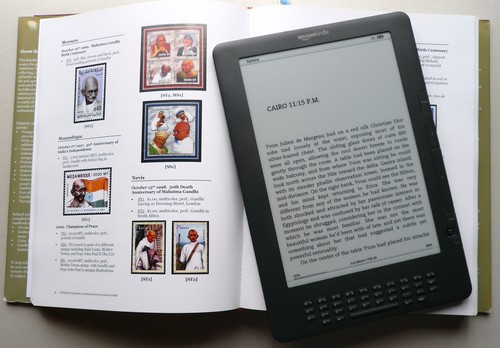Electronic textbooks are worse remembered

Around the world, educational institutions are trying to introduce e-books that are much cheaper than paper ones. However, how effectively such textbooks perform their main function? Is it convenient to study new topics and memorize information from the "reader" screen? Unfortunately, a recent study among freshmen at the University of Washington gives a negative answer. By the way, this is generally the first study on the long-term use of electronic books (it lasted seven months).
39 first-year students of the computer faculty (Department of Computer Science & Engineering) aged 21 to 53 (?) Years received electronic “readers” of a large size Kindle DX and the entire set of textbooks in electronic form. After seven months, it turned out that less than 40% of students do their homework using the Kindle DX, and the rest switched to paper books. The problem is that the Kindle doesn’t support writing notes on the margins, doesn’t allow for easy fluent reading, and makes it difficult to view the references to which the text refers (compared to computers and textbooks). As a result, it turned out that a number of students still kept paper notes and stored them in a case along with Kindle, while others read Kindle next to the computer in order to be able to quickly look through reference materials.
But there is another, more serious problem. Digital text destroys text memorization techniques, known as cognitive maps , when the reader uses physical “hints”, such as the layout of the text in a book and its appearance, to quickly find the text and even to memorize it.
')
Besides the problem with cognitive maps, everything else is purely technical issues that can be solved with a future Kindle upgrade, but what about the virtuality of the carrier itself? We rejoice in technological progress, but what if our brain is not ready for it? Is it really a paper book, by its nature, a better tool for memorizing information?
It seems that researchers from the University of Washington gave another trump card to the Luddite camp. It remains only to hope that their research is incorrect, and that the cognitive maps are a meaningless invention. Otherwise, schools will have to abandon the technological future and return to books, notebooks and pencils. And we have to admit the sad fact that sometimes the best technology is not the best solution.
Source: https://habr.com/ru/post/118710/
All Articles